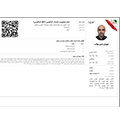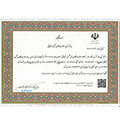Navigating Iranian Business Laws: What Foreign Investors Must Know
Iran at the Crossroads of Opportunity and Regulation
For decades, Iran has remained a land of paradoxes for foreign investors—rich in opportunity, yet layered with complexity. With a population of over 85 million, a strategic geographic position, and vast industrial and energy potential, Iran is a market few can ignore. However, navigating its unique legal, bureaucratic, and cultural terrain requires more than due diligence; it demands nuanced understanding and on-the-ground expertise.
Dr. Ahmad Mirabi, a leading Iranian business strategist with over two decades of hands-on experience, notes:
“Foreign companies don’t fail in Iran because they lack vision. They fail because they underestimate the ecosystem.”
This guide demystifies the Iranian business legal environment—helping foreign companies understand the essentials, avoid common traps, and build a sustainable presence.
Understanding the Legal Landscape: The Foundations of Business Law in Iran
Iran’s business legal structure is a blend of civil law, Islamic principles, and state-centric regulations. Key legal pillars include:
- Iranian Civil Code – Governs contractual obligations and ownership rights.
- Commercial Code – Regulates business entities, negotiable instruments, bankruptcy, and corporate governance.
- Labor Law – Protects employee rights and imposes significant employer obligations.
- FIPPA (Foreign Investment Promotion and Protection Act) – The main legislative framework for foreign investment.
Business licenses, permits, and company registration are governed by various bodies such as the Iranian Ministry of Industry, Mine and Trade, and Iranian National Tax Administration (INTA).
Pro Tip by Dr. Mirabi: “Investors must align their corporate structure with permitted sectors and know that local bureaucracy values persistence more than speed.”
Foreign Investment in Iran: FIPPA and Beyond
FIPPA offers guarantees and incentives to foreign investors:
- Full repatriation of capital and profits
- Protection against expropriation
- National treatment (equal to local companies)
- International arbitration clauses permitted in contracts
However, practical challenges persist:
Approval delays from the Organization for Investment Economic and Technical Assistance of Iran (OIETAI)
Exchange rate volatility
Sectoral restrictions (e.g., oil, telecom, banking)
Not all sectors are open to 100% foreign ownership, and local partnership structures (Joint Ventures or nominee shareholder models) are often required.
Cultural and Bureaucratic Nuances: Reading Between the Lines
Iranian business culture is highly relationship-oriented. Contracts are necessary, but trust is paramount.
- Face-to-face meetings and local presence matter more than emails or formal proposals.
- Decision-making can be hierarchical and opaque.
- Negotiations may involve unwritten expectations or “gentleman’s agreements.”
Dr. Mirabi emphasizes:
“A written contract protects you on paper, but understanding how decisions are really made protects you in reality.”
Common Legal Risks and Compliance Gaps
Legal missteps often occur in the following areas:
| Risk Area | Foreign Misassumption | Iranian Reality |
| Business Setup | “We can incorporate like in Dubai or Turkey” | Bureaucracy is layered; licensing is multi-agency |
| IP Protection | “Trademarks are auto-enforced” | Local registration required—international filings insufficient |
| Currency Exchange | “Central Bank allows easy repatriation” | Strict controls, delays, and multiple currency systems |
| Employment Contracts | “We’ll use our global HR model” | Iran’s labor law is highly protective of workers |
| Dispute Resolution | “We’ll go to international arbitration” | Only if explicitly written and accepted by Iranian side |
Strategic Advice from Dr. Ahmad Mirabi: Bridging Law and Market Reality
Having advised over 100 international and regional companies entering the Iranian market, Dr. Mirabi shares:
On localization:
“Your product doesn’t just need translation—it needs cultural integration. That includes legal touchpoints, brand tone, and how you engage regulators.”
On navigating uncertainty:
“Iranian law evolves faster than it’s documented. You need real-time local guidance more than a PDF.”
On market strategy:
“The smartest companies don’t enter Iran—they embed themselves by building local intelligence and investing in long-term trust.”
How to Prepare Legally Before Entering Iran
Before making any market move:
- Engage bilingual legal counsel familiar with FIPPA and civil-commercial code intersections.
- Secure preliminary local partners or consultants to test assumptions and interface with agencies.
- Verify sector permissions—some industries are still off-limits or heavily regulated.
- Draft adaptive contracts—combine local compliance with international dispute resolution models.
- Understand tax and customs obligations—consult INTA or a registered tax agent.
Explore advisory services for business entry — tailor-made by Dr. Ahmad Mirabi for foreign companies.
Branding and Legal Intelligence Go Hand in Hand
Legal compliance alone doesn’t ensure success. In Iran’s trust-based economy, your brand image, local reputation, and communication style carry legal consequences.
A culturally tone-deaf campaign or an aggressive contractual approach can erode goodwill—leading to loss of partnerships or even regulatory scrutiny.
That’s why legal strategy must walk alongside branding, market behavior, and stakeholder alignment.
Dr. Mirabi’s integrated consulting model combines:
- Legal localization
- Brand identity alignment
- Government affairs mediation
- Stakeholder mapping in high-context cultures
The Importance of Local Representation: Legal and Operational Leverage
One of the most overlooked success factors in Iran is having the right local representative or agent. While foreign investors often rely on large legal firms or embassy advisories, nothing replaces the value of trusted local boots on the ground—especially in navigating regulatory and bureaucratic nuances.
Local representatives can:
- Interface directly with government bodies (including Ministry of Commerce, Customs, and Municipality)
- Interpret unspoken cultural signals during negotiations
- Expedite approvals and navigate the “who-you-know” dynamics
- Protect your interests by acting as intermediaries in deal structuring
However, choosing a representative is not just a checkbox—it’s a strategic decision. Due diligence is essential, as Iran’s business ecosystem includes informal influence networks, and the wrong partner can delay or even derail your entry.
Dr. Mirabi advises:
“Choose someone who is bilingual in both language and mindset. Someone who understands legal frameworks but also reads the political weather.”
In some sectors, such as pharmaceuticals, import-export, or construction, having a registered local agent is mandatory. In others, it’s a smart hedge against red tape and misunderstanding.
In short, invest in people before paperwork—a trusted local presence can be your legal safety net and operational bridge.
Intellectual Property Protection in Iran: Reality vs. Perception
Many foreign brands assume that global trademark registration extends to Iran—but that’s not the case. Iran is not a member of WIPO’s Madrid Protocol, meaning IP protection must be initiated separately through Iranian legal channels.
Key points:
- Trademarks, logos, patents, and industrial designs must be registered with The Iranian Industrial Property Office.
- “Use it or lose it” applies—if your trademark isn’t used commercially, it may be challenged or invalidated after a few years.
- Enforcement is improving, but still requires active legal follow-up and sometimes litigation.
- Counterfeit goods are prevalent in some categories (especially cosmetics, electronics, and automotive), so monitoring and legal action are critical.
Foreign companies should consult local legal experts to:
- Translate and file all IP documentation properly in Farsi
- Monitor the market for infringements
- Enforce cease-and-desist notices through legal channels or through Iran’s Dispute Resolution Council
Dr. Mirabi’s insight:
“Your brand is your most valuable asset in Iran. Register it early, protect it actively, and build visibility to reinforce legitimacy.”
Understanding Iran’s Taxation System: What Foreign Companies Should Expect
Iran’s tax framework is formal and codified—but the enforcement and interpretation often require local adaptation. Foreign investors operating under FIPPA enjoy certain tax benefits, but they still must engage fully with the Iranian National Tax Administration (INTA).
Highlights:
- Corporate tax is currently 25% flat on net taxable income.
- VAT ranges from 9–15%, depending on product category.
- Exemptions are available for export-based businesses, knowledge-based firms, and industrial zones.
- Annual tax returns must be filed in Persian and audited by licensed Iranian auditors.
While the law appears straightforward, application can be inconsistent. This is due to factors like:
- Incomplete digitization of the tax system
- Sector-specific interpretations
- Periodic government reforms or delays in enforcement
Dr. Mirabi suggests foreign investors:
- Appoint a local certified tax consultant
- Keep dual-language financial records
- Engage in pre-filing consultations with tax authorities to avoid surprises
Failure to comply can result in:
- Retroactive audits
- Penalties and delays in profit repatriation
- Legal disputes with INTA
Why Legal Flexibility Is a Competitive Advantage in Iran
Legal rigidity can backfire in dynamic markets like Iran. While legal security is essential, foreign investors must combine it with operational flexibility to thrive in this unique ecosystem.
Iran’s business landscape is shaped by:
- Evolving regulations
- Unpredictable enforcement timelines
- Geopolitical pressures that affect trade, finance, and logistics
A successful market entry plan must be legally sound but strategically adaptive. This means:
- Designing contracts that allow renegotiation or localization
- Creating multi-path strategies (e.g., using local distributors and direct channels simultaneously)
- Preparing for dual regulatory interpretations, especially in highly regulated sectors
Dr. Mirabi notes:
“In Iran, the winners aren’t the most prepared—they’re the most adaptable. They design their legal models to flex with market reality.”
Foreign investors who embed flexibility into their:
Partnership agreements
Supply chain contracts
Distribution frameworks are better equipped to manage volatility while retaining legal protection.
Think of legal planning in Iran as a living document, not a final agreement. Flexibility isn’t a compromise—it’s a competitive advantage.
Conclusion: Entering Iran Requires Law, Empathy, and Strategy
Iran is not a copy-paste market. It demands strategic adaptation—not just in your business model, but in how you read its laws, interpret its bureaucracy, and build long-term trust.
For those willing to learn and localize, Iran offers unmatched opportunities in construction, healthcare, fintech, and agriculture. But shortcuts rarely work. Smart entry is slow, deliberate, and informed by those who’ve navigated the path before.
Build Your Legal and Strategic Entry Plan with Confidence
Ready to enter the Iranian market the right way?
Book a confidential consultation with Dr. Ahmad Mirabi
Explore services for international investors
Learn more about market entry strategy in Iran





